Publications
Articles, publications, books, tools and multimedia features from the U.S. Institute of Peace provide the latest news, analysis, research findings, practitioner guides and reports, all related to the conflict zones and issues that are at the center of the Institute’s work to prevent and reduce violent conflict.
Question And Answer
Amid a Changing Global Order, NATO Looks East
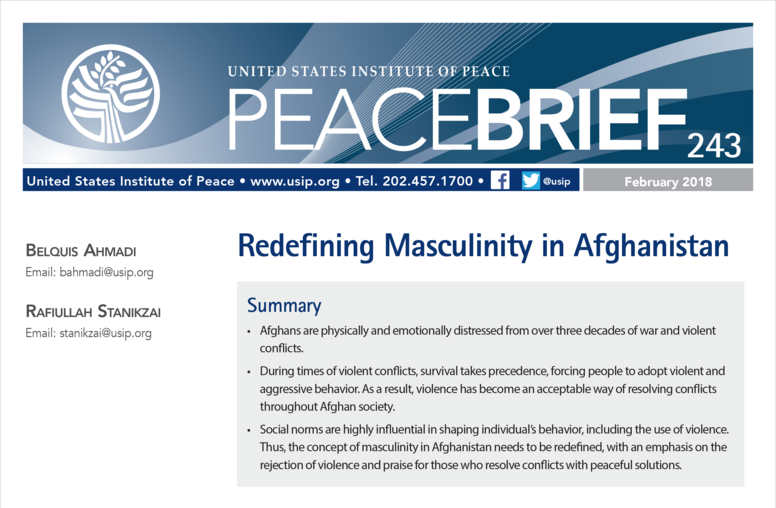
Redefining Masculinity in Afghanistan
Following more than three decades of political instability, violent conflicts, and foreign invasions, Afghanistan is home to nearly two generations that have grown up knowing only conflict and war. As a result, violent and aggressive behavior—particularly from young men—has become an accepted norm of...
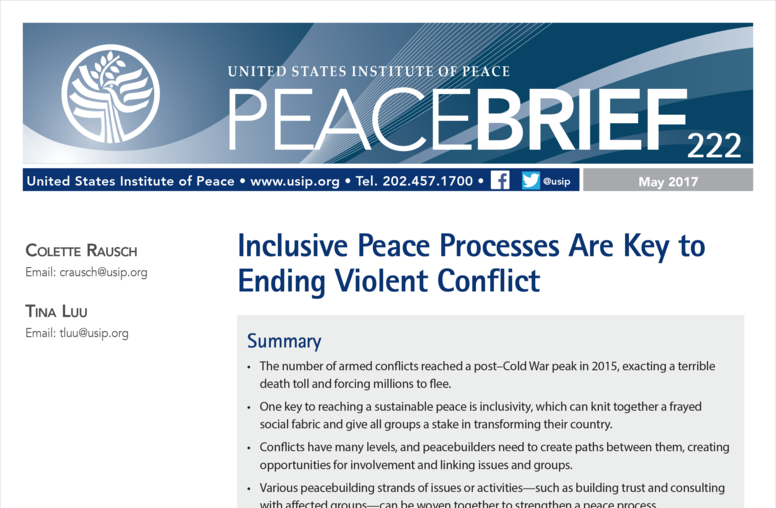
Inclusive Peace Processes Are Key to Ending Violent Conflict
Violent conflict, refugee flows, and internal displacements present international policymakers and practitioners today with unprecedented challenges. Tackling these problems requires not only signed peace agreements but also sustainable peace. It is not enough to bring armed actors to the negotiating table, however. To be effective, the peace process needs to be inclusive and participatory. But what constitutes inclusive participation, and how can peacemakers and peacebuilders achieve it in their own, very different societies? Drawing on discussions in a public forum held in early 2017, this Peace Brief looks at the elements of peacebuilding and explains how critical inclusive participation is to that process.
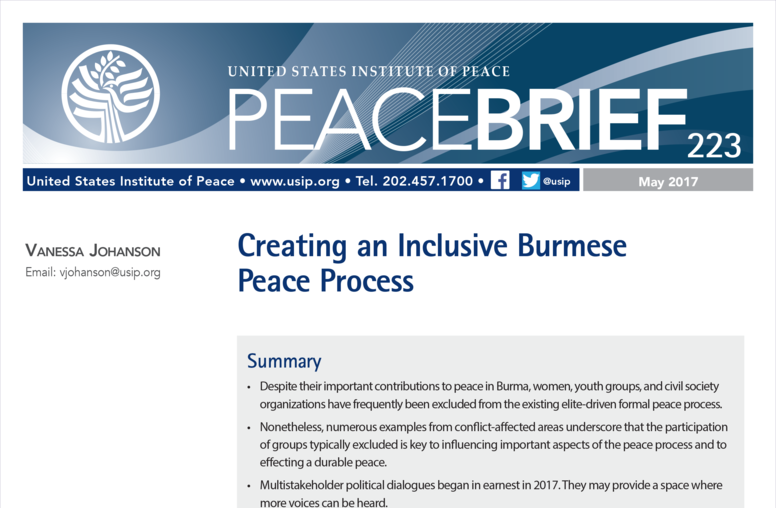
Creating an Inclusive Burmese Peace Process
Burma's peace process reached a milestone with the October 2015 signing of the Nationwide Ceasefire Agreement. The Aung San Suu Kyi government, the most democratic in living memory, has prioritized the peace process; however, many women's and youth groups and other civil society organizations have been marginalized during the negotiations, their voices on important topics silenced in favor of elite input. As a result, a parallel track of activism aimed toward peacebuilding outside the formal structure has developed. The international community should support both tracks while continuing to urge the formal inclusion of marginal groups in the main process.
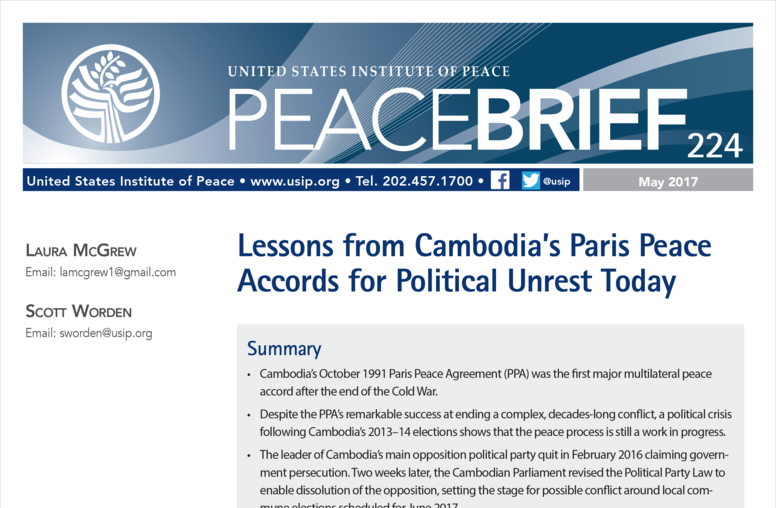
Lessons from Cambodia’s Paris Peace Accords for Political Unrest Today
In December 2016, to mark the twenty-fifth anniversary of the 1991 Paris Peace Agreement that ended the decade-long war between Cambodia and Vietnam, USIP hosted a conference to examine the implementation of that agreement and how the decisions made in the past have affected increasing political unrest in the country. Panelists included several key actors...
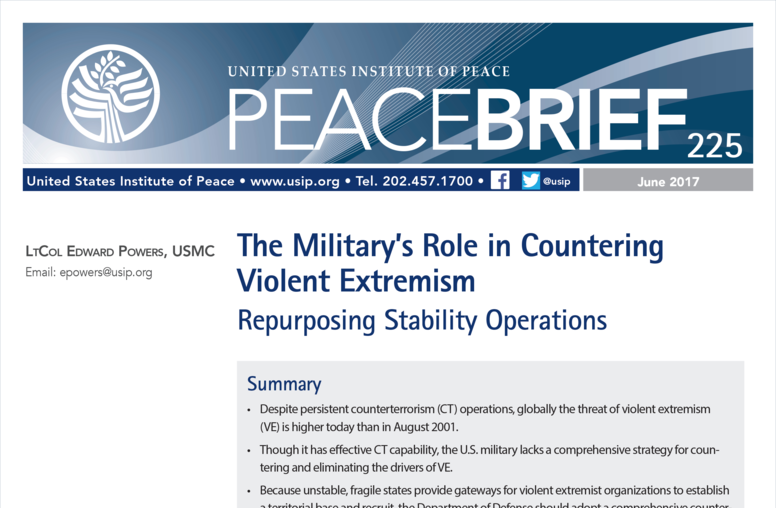
The Military’s Role in Countering Violent Extremism
The U.S. military, through its stabilizing mission, has a role to play in countering and eliminating the drivers of violent extremism (VE). Though the military has effective counterterrorism (CT) capability, there is a gap in its counter-VE (CVE) strategies that can be closed by linking reactive CT operations to preventative efforts to remove the drivers of VE. ...
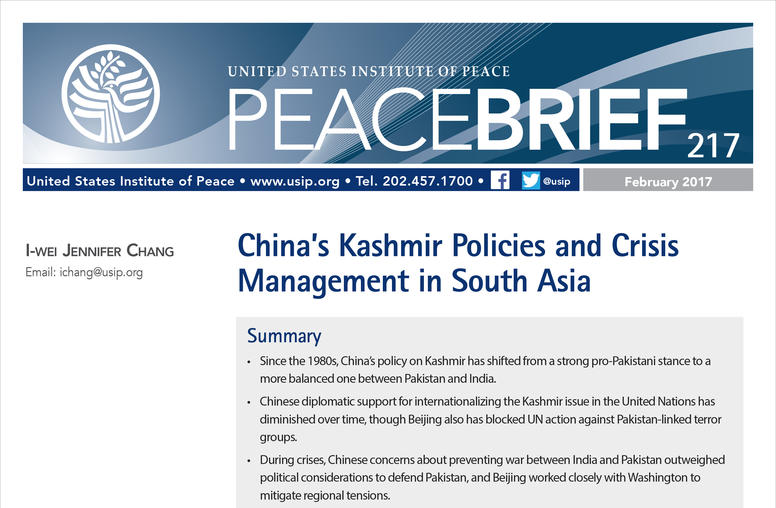
China’s Kashmir Policies and Crisis Management in South Asia
China’s policy on the Kashmir conflict between India and Pakistan has a significant impact on regional stabilization and crisis management efforts in South Asia. Beijing also plays an important third-party role in helping deescalate hostilities between the two countries. This brief discusses the evolution of China’s Kashmir policies over the past several decades and examines Chinese cooperation with the United States during periods of crises between the South Asian rivals.
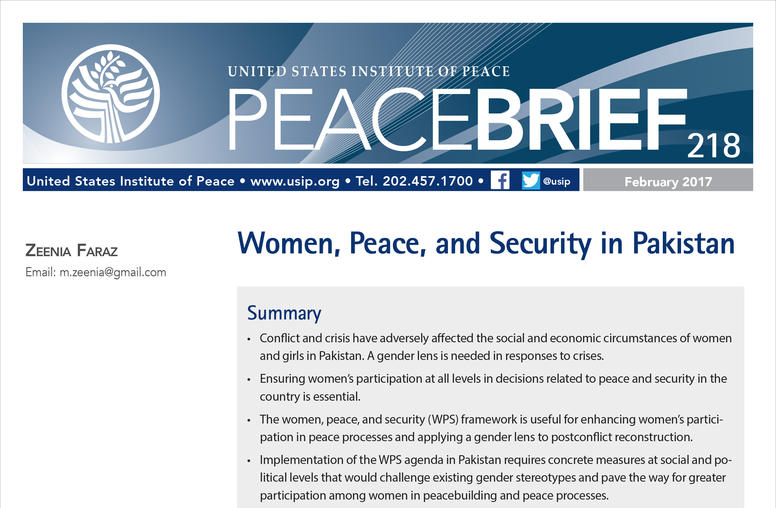
Women, Peace, and Security in Pakistan
A society defined by patriarchal norms and structural inequalities keeps women and girls on the margins of the society and hinders women’s participation in public and political spheres. Yet women’s participation in decisions related to peace and security in the country is essential to peacebuilding and postconflict reconstruction. This brief examines the challenges in implementing the women, peace, and security framework in Pakistan.
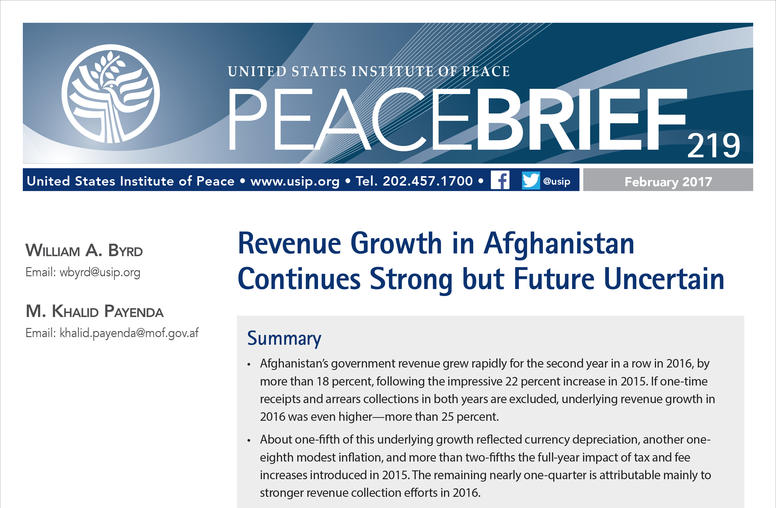
Revenue Growth in Afghanistan Continues Strong but Future Uncertain
This Peace Brief analyzes the main ingredients behind this success. In the end, however, the authors believe that sustained robust revenue growth will hinge on a durable revival of the Afghan economy, which in turn depends on achieving major progress toward peace.
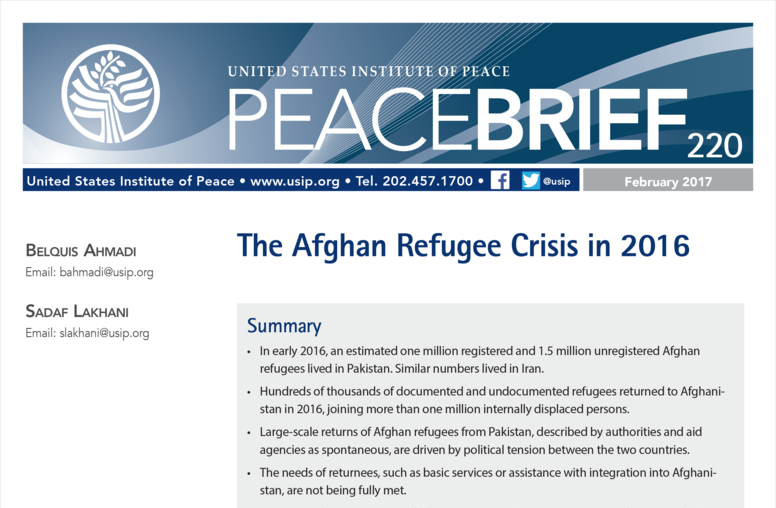
The Afghan Refugee Crisis in 2016
Hundreds of thousands of documented and undocumented refugees returned to Afghanistan in 2016, joining more than one million internally displaced within the country. International agencies warn of a humanitarian crisis that would affect hundreds of thousands of people as returnees struggle to meet basic needs. This Peace Brief provides an overview of the situation at the end of 2016, focusing on those returning from Pakistan, the humanitarian situation, and the security implications of the influx.
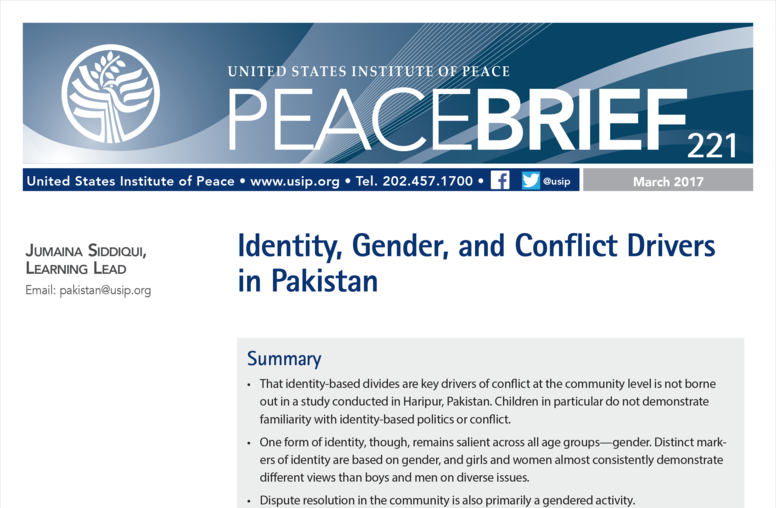
Identity, Gender, and Conflict Drivers in Pakistan
Based on a study conducted in the Pakistani town of Haripur that investigated children’s attitudes toward identity, this Peace Brief finds that identity-based divides are in fact not the primary drivers of conflict at the community level, but notes the continuing salience of gender identity, which produces differing social expectations and differing understandings of conflict resolution roles.